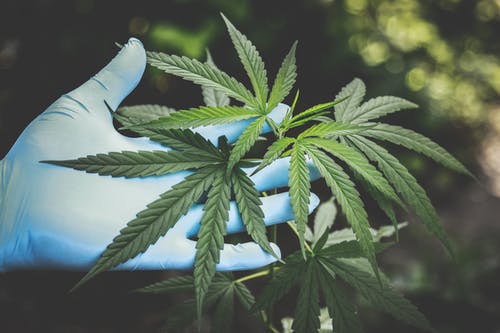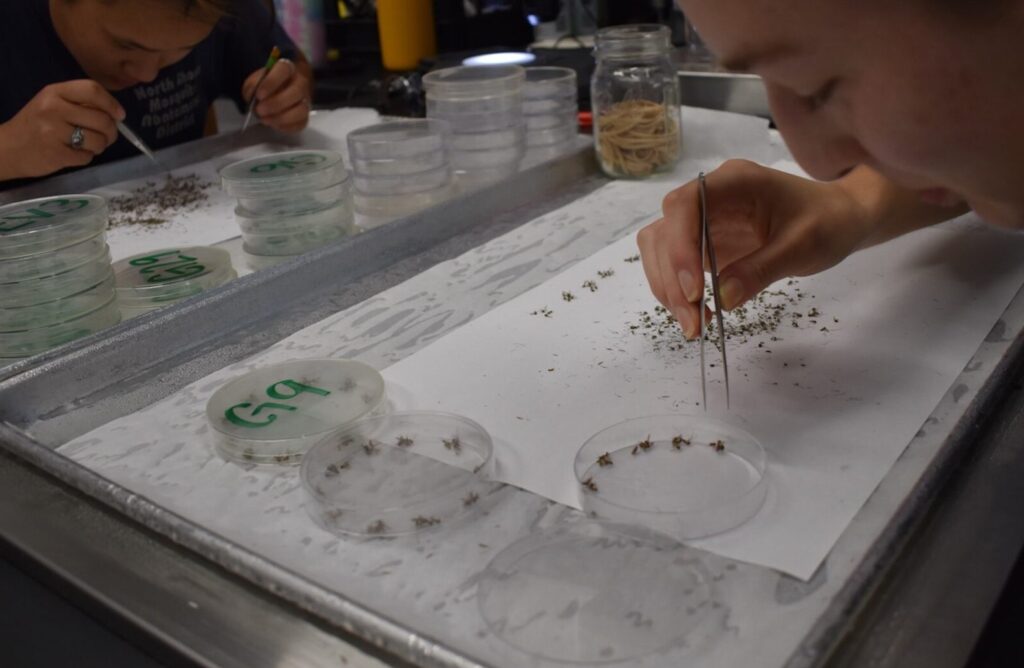
The how and why behind Wilmette’s cannabis referendum and its pot-tax proposal for Tuesday, Oct. 27
A ballot question served to Wilmette voters this election season is meant to help the Village of Wilmette decide the fate of cannabis sales within city limits.
The process began last October, when Wilmette trustees approved a moratorium on in-village cannabis sales in advance of the state legalizing such sales at the start of 2020 under the Illinois Cannabis Regulation and Tax Act.
At that time, the Wilmette Village Board directed staff to build an advisory referendum for the 2020 General Election to get the opinion of voters.
“(A referendum) was the most accessible way for the whole community to give their opinion,” Village Manager Michael Braiman told The Record.
To help inform this process, Village officials looked back to discussion around another once-illegal drug: alcohol.
“Soliciting input from the community is critically important.” Michael Braiman, Wilmette Village manager
Braiman said the village board reviewed how Wilmette handled liquor control in 1974, when three separate advisory questions were balloted. Two of the three questions – whether to allow alcohol sales in 1. Restaurants and 2. Retail spaces — were affirmed by Wilmette voters. The sale of alcohol in taverns was overwhelmingly disliked by residents, nearly 3 to 1.
In response, after a century of banning booze sales, the Village followed residents’ wishes with ordinances to legalize local alcohol sales in restaurants and at retail spots.
“The board saw a connection between cannabis and alcohol and whether sales should be legal,” Braiman said. “Soliciting input from the community is critically important and the best way to do that is through a referendum process.”
On the ballot, voters will be asked, specifically, “Shall the retail sale of adult use recreational cannabis be permitted within the Village of Wilmette at a business licensed by the State of Illinois?”
Braiman said the result will be an important influence on the Village’s decision-making process, but it won’t be the only influence.
Revenue potential, crime and policing impacts, and traffic repercussions are the “types of things we’ll look at,” he said.
Fortunately, the village has real, local data to review. While many nearby villages (Winnetka, Glenview, Kenilworth and Glencoe) have banned sales, others such as Skokie, Evanston, Northbrook, Niles, Buffalo Grove and Deerfield allow cannabis sales.
Highland Park, Morton Grove and Park Ridge also have referendum questions on their ballots.
Though data is limited, Evanston (opened Jan. 1), Buffalo Grove (not yet open), Northbrook (Oct. 1) and Skokie (Sept. 3) are estimating anywhere from $350,000 to $600,000 in annual revenue from a single facility.
None of the villages have reported any additional traffic, parking or crime issues linked to the facilities, according to a report from the Village of Northfield.
The proximity of legal dispensaries is also a consideration for the board, as Wilmette residents interested in purchasing marijuana do not have to go far to reach legal dispensaries in Skokie (corner of Skokie Boulevard and Old Orchard Road), Northbrook or Evanston.
Wilmette officials plan to review all of the above and begin discussion in early 2021, Braiman said, who added that the board will be busy finalizing the 2021 budget in the final two months of 2020.
The current moratorium expires on June 30, 2021, which gives the Village seven months to make a formal decision on the legality of cannabis sales.
Board to talk cannabis tax at Tuesday, Oct. 27 meeting
In the meantime, the board has been working on a zoning ordinance that amends its cannabis regulations and establishes a retail tax for cannabis sales. The proposal will be introduced Tuesday, Oct. 27, at the regularly scheduled board meeting.
The ordinance also defines a cannabis business establishment to distinguish it from medical cannabis sales.
According to a Village memo, adopting a tax before sales are legal is “the best method to ensure validity of such a tax in the future,” meaning the Village would like the ability to tax cannabis sales should they become legal in the village and should the State limit local taxation at any point.
The proposal also states that while it is illegal to publicly sell, deliver, distribute or consume cannabis in Wilmette, there are exemptions for possession and home-growth of medical cannabis.

Joe Coughlin
Joe Coughlin is a co-founder and the editor in chief of The Record. He leads investigative reporting and reports on anything else needed. Joe has been recognized for his investigative reporting and sports reporting, feature writing and photojournalism. Follow Joe on Twitter @joec2319


